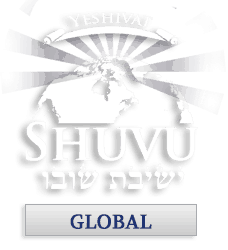וְהִקְרַבְתֶּ֨ם עֹלָ֜ה אִשֵּׁ֨ה רֵ֤יחַ נִיחֹ֨חַ֙ לַֽיהֹוָ֔ה פָּרִ֧ים בְּנֵֽי־בָקָ֛ר שְׁלשָׁ֥ה עָשָׂ֖ר אֵילִ֣ם שְׁנָ֑יִם כְּבָשִׂ֧ים בְּנֵֽי־שָׁנָ֛ה אַרְבָּעָ֥ה עָשָׂ֖ר תְּמִימִ֥ם יִֽהְיֽוּ: וּמִ֨נְחָתָ֔ם סֹ֖לֶת בְּלוּלָ֣ה בַשָּׁ֑מֶן שְׁלשָׁ֨ה עֶשְׂרֹנִ֜ים לַפָּ֣ר הָֽאֶחָ֗ד לִשְׁלשָׁ֤ה עָשָׂר֙ פָּרִ֔ים שְׁנֵ֤י עֶשְׂרֹנִים֙ לָאַ֣יִל הָֽאֶחָ֔ד לִשְׁנֵ֖י הָֽאֵילִֽם: וְעִשָּׂרוֹן עִשָּׂר֔וֹן לַכֶּ֖בֶשׂ הָֽאֶחָ֑ד לְאַרְבָּעָ֥ה עָשָׂ֖ר כְּבָשִֽׂים: וּשְׂעִֽיר־עִזִּ֥ים אֶחָ֖ד חַטָּ֑את מִלְּבַד֙ עֹלַ֣ת הַתָּמִ֔יד מִנְחָתָ֖הּ וְנִסְכָּֽהּ:
You shall offer up a burnt offering, a fire offering for a pleasing aroma to the Lord: thirteen young bulls, two rams, fourteen lambs in the first year; they shall [all] be unblemished. And their meal offering [shall be] fine flour mixed with oil; three tenths for each bull for the thirteen bulls, two tenths for each ram for the two rams. And one tenth for each lamb, for the fourteen lambs. And one young male goat for a sin offering, besides the continual burnt offering, its meal offering, and its libation.
Numbers 29:13-16
This Shabbat is the first day of Sukkot. The Torah portion is from Leviticus 23 and the Maftir portion is the corresponding section from Numbers 29. This section from Numbers 29 instructs us regarding one of the most poignant offerings in all Torah: The sacrifice of the 70 bulls.
According to Rashi, the 70 bulls correspond to the 70 nations of the earth. Israel is instructed to bring sacrifices for the nations of the earth. This is a curious idea. Israel is the only nation with a relationship to Hashem. Beyond Israel, individuals have relationships with Hashem, but no other nations have a relationship with Hashem. Why would Israel be instructed to bring sacrifices for these nations that have no relationship with Hashem?
The answer is fairly simple, but the implications of the answer are vastly complex. Israel is to bring sacrifices for the nations because Israel is instructed to be a light unto the nations. Israel is instructed to be a kingdom of Kohayns to the nation. This is the reason Israel has a relationship to Hashem when no other nation does.
So, Israel is supposed to be a light unto the nations, how? Israel is supposed to be a kingdom of Kohayns, how? Often, we take these concepts and treat them rather casually; cavalierly. In fact we should not, rather, we should dig deeper in order to understand Israel’s role in the universe.
In the sacrifice of the 70 bulls, we see a clear indication of Israel’s role of being a kingdom of Kohayns. One of the purposes of the Kohayns is, through sacrifice, to be an intercessor before Hashem. Israel’s role as intercessor is illustrated in the Sukkot offering. Israel’s role as being a light unto the nations is also illustrated in the Sukkot sacrifice. This commandment is a Chukah, a commandment that does not have an explanation attached. We are simply to perform this commandment and Hashem does not tell us why. We show the nations of the world what obedience to Hashem means through regarding, performing, a mitzvah that is not explained. It is simply an act of obedience. This is how the nations should follow Hashem, and in fact, in the end times, this is how the nations will follow Hashem.
In summary, the sacrifice of the 70 bulls has two separate purposes. It is Israel’s intercession with Hashem on behalf of the nations, and it is a teaching to the nations of how obedience to Hashem works. Both lessons are important, and both lessons will become increasingly recognized as the return of Yeshua grows imminent. Shana tova, Shabbat shalom, and Chag sameach.
